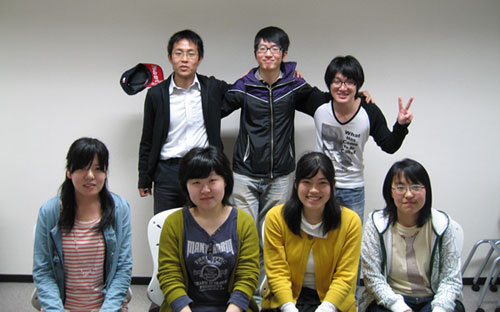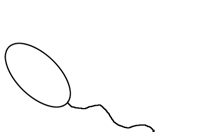Team:Chiba/test
From 2010.igem.org
(Difference between revisions)
| Line 17: | Line 17: | ||
table { | table { | ||
| - | color: # | + | color: #333333; |
} | } | ||
| + | |||
#content { | #content { | ||
| Line 24: | Line 25: | ||
width: 980px; | width: 980px; | ||
line-height: 1.2em; | line-height: 1.2em; | ||
| + | color: #ff3366; | ||
} | } | ||
| Line 225: | Line 227: | ||
{| border="0" cellpadding="50" cellspacing="0" align="center" | {| border="0" cellpadding="50" cellspacing="0" align="center" | ||
|- | |- | ||
| - | |<font size=5> | + | |<font size=5>PROJECT</font> |
| - | + | ||
| + | ---- | ||
| + | |||
| + | <font size=3> | ||
We daily double-click the icons to open the files or to exert the program: this is clearly distinguished from the single click, which is often for selecting or highlighting the program. This year, iGEM CHIBA is constructing genetic double-click system whose output is released only when the input (inducing agent) is given twice within a limited time. To discriminate double-click from two separated single-clicks, the 1st input is to be memorized temporarily. If the 2nd input is added before the memory gets lost, output will be produced. If the 2nd input is not added within the given time, the system will be reset to the original state. This mechanism could work as a sort of safety device; by requiring the 2nd ‘confirmation’ input, one can drastically reduce, or even eliminate, the frequency of false-inputs. This system could be useful in operating the potent or potentially-hazardous biochemical processes. | We daily double-click the icons to open the files or to exert the program: this is clearly distinguished from the single click, which is often for selecting or highlighting the program. This year, iGEM CHIBA is constructing genetic double-click system whose output is released only when the input (inducing agent) is given twice within a limited time. To discriminate double-click from two separated single-clicks, the 1st input is to be memorized temporarily. If the 2nd input is added before the memory gets lost, output will be produced. If the 2nd input is not added within the given time, the system will be reset to the original state. This mechanism could work as a sort of safety device; by requiring the 2nd ‘confirmation’ input, one can drastically reduce, or even eliminate, the frequency of false-inputs. This system could be useful in operating the potent or potentially-hazardous biochemical processes. | ||
| + | </font><br> | ||
| + | ---- | ||
|[[Image:Chiba_ani_1.gif]] | |[[Image:Chiba_ani_1.gif]] | ||
|} | |} | ||
| Line 233: | Line 240: | ||
|- | |- | ||
|<html><marquee> | |<html><marquee> | ||
| - | < | + | <BODY BGCOLOR="#ff6600"> |
<SCRIPT LANGUAGE="JavaScript"> | <SCRIPT LANGUAGE="JavaScript"> | ||
| Line 279: | Line 286: | ||
<SCRIPT> | <SCRIPT> | ||
{ | { | ||
| - | rainbow("Contact Us Let's share our inspiration!"); | + | rainbow |
| + | ("Contact Us! Let's share our inspiration!"); | ||
} | } | ||
</SCRIPT> | </SCRIPT> | ||
| Line 298: | Line 306: | ||
<!--- Main Contents ---> | <!--- Main Contents ---> | ||
<html> | <html> | ||
| - | <body bgcolor="white" text="black" link=" | + | <body bgcolor="white" text="black" link="yellow" vlink="purple" alink="red" background="https://static.igem.org/mediawiki/2010/a/a1/Chiba_ground_2.jpg"> |
</html> | </html> | ||
Revision as of 15:34, 9 October 2010

|
 
| 
|
Special Thanks!


 "
"
